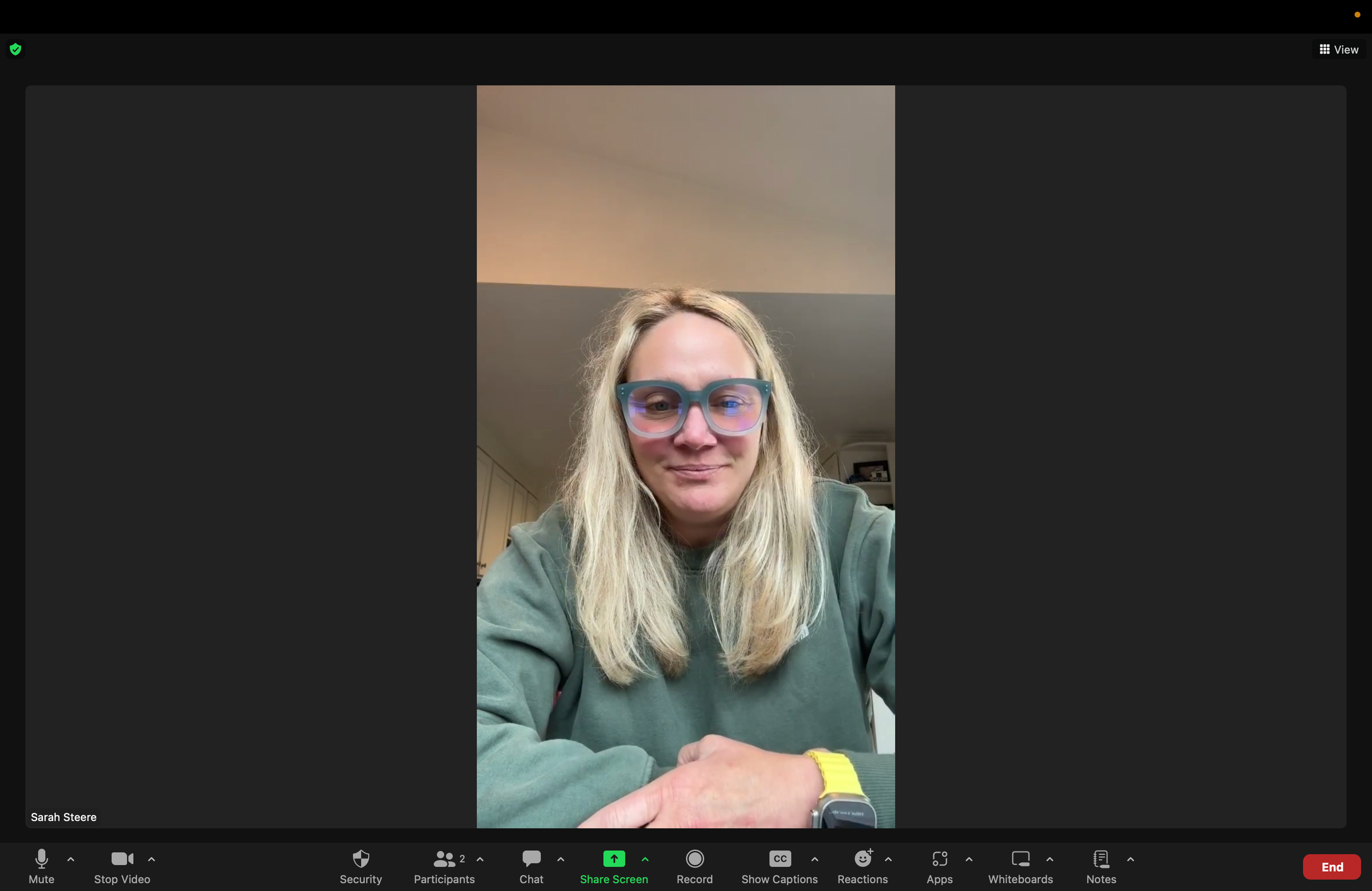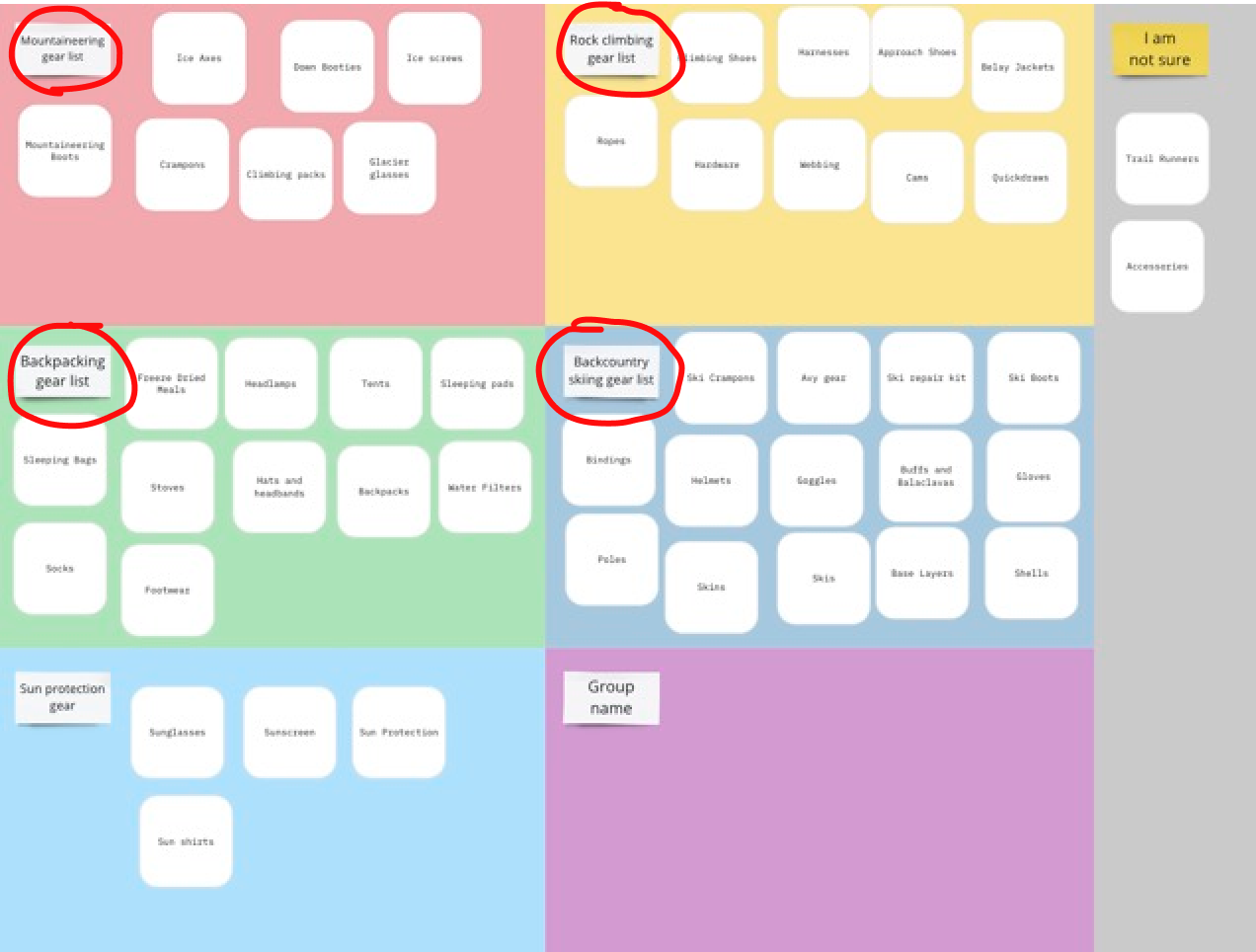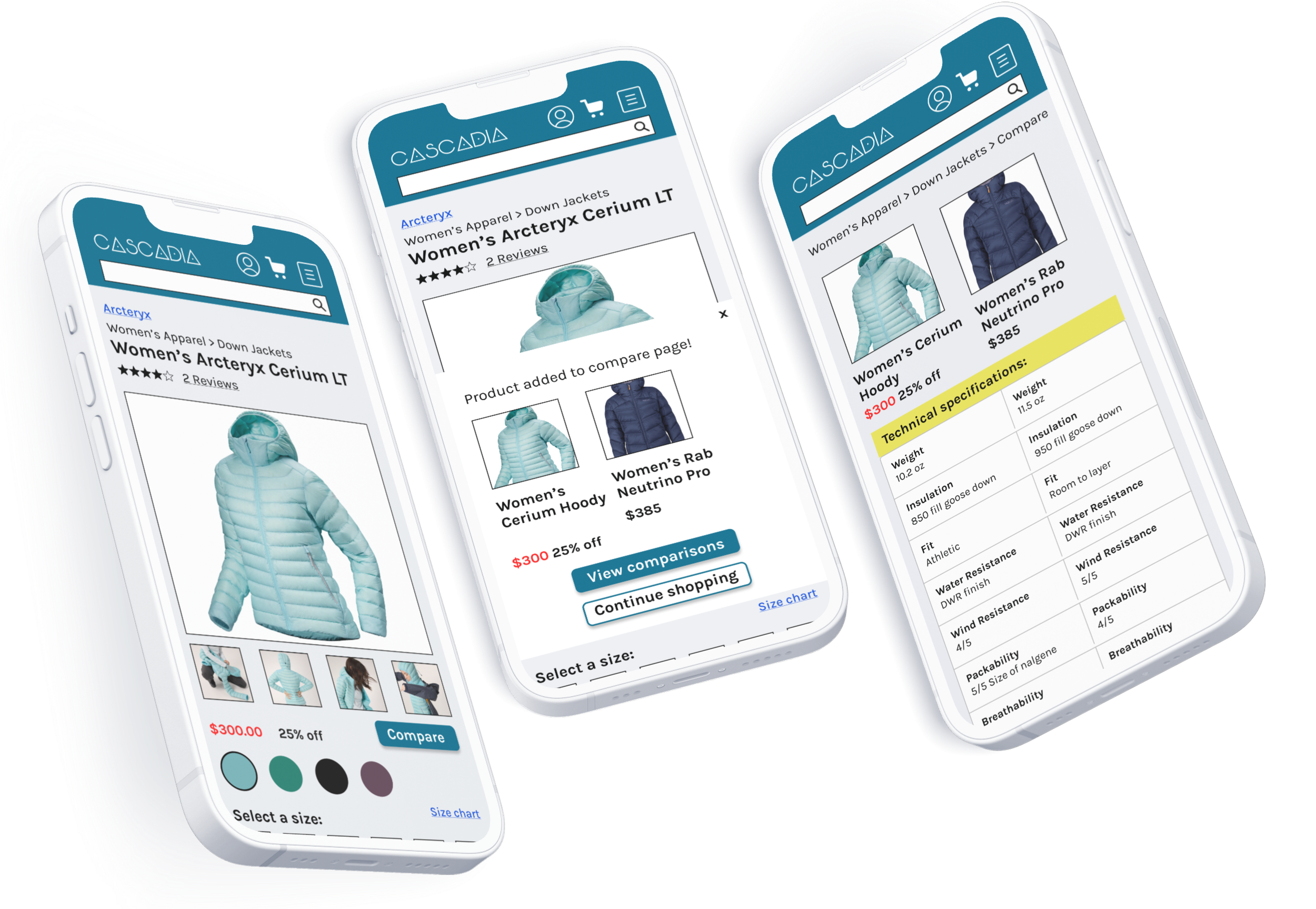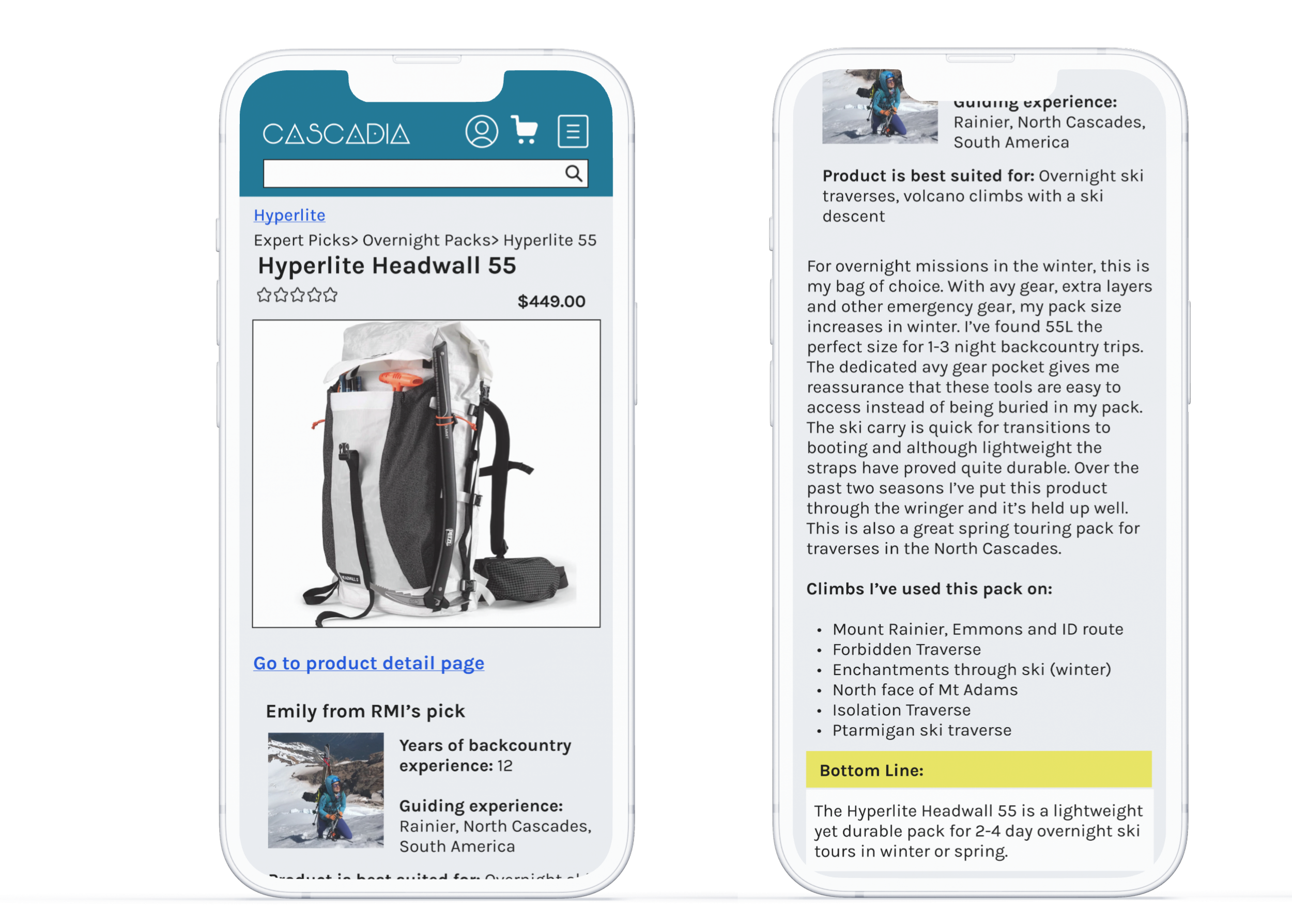Cascadia
Cascadia is a concept for an e-commerce outdoor gear site. With several volcanoes, year-round glacier access and the North Cascades, Washington provides endless opportunities for the recreational athlete to test themselves in challenging environments.
Purchasing gear is anything but simple.
Product details like weight, materials, and durability must be taken into consideration, each factor of varying importance depending on what the gear will be used for. Not to mention, it’s an investment for years to come. My goal for this project was to make this process easier. This led me to the business opportunity:
How can we provide athletes with the product details and insight they need, in order to purchase gear that aligns with their goals?
I set out to interview some of the most seasoned, opinionated outdoor athletes I could find.. like this participant, who started backpacking in middle school (age 48 now):
My survey received 48 responses from local mountaineering groups on Facebook and Reddit.
I found out that the process for vetting gear for purchase is a lot of work. It starts with intentional research through blogs, reviews, and product details, and can continue for weeks.
During competitor reviews, I realized a lot of product pages are text heavy
I conducted five card sorting exercises on Miro which helped inform my global navigation.
4/5 users organized items with at least one sport, so it was natural to define categories this way using the most popular sports from my interviews and survey.
Here a user used “mountaineering gear, rock climbing gear, backcountry skiing and backpacking gear” to organize items.
The combined decades of outdoor experience of my research participants led to some solid insights:
Outdoor gear is performance oriented, especially considering Washington has so much technical terrain. Choosing the right gear can have serious consequences when athletes are in complex landscapes. This makes product details like weight and materials and the ease of finding them important.
Product details alone don’t tell the whole story. It can be hard for athletes to differentiate between two similar items and know which one best suits their purposes.
A personal touch and honest expertise are missing from the online shopping experience. Heck, sometimes it’s even missing from brick and mortar stores. Athletes want to hear from people who have actually used the gear.
A comparison tool was a no-brainer.
80% of survey respondents expressed the desire for one while shopping. Experienced athletes want to look at all of the options and compare their favorites side by side.
An accordion helps users find the information they need without getting overwhelmed.
Product pages tend to be text heavy, which can feel tiring and overwhelming for the user. The accordion keeps pertinent details organized and accessible. The design details tab highlights what makes a product unique, helping further distinguish it.
An Expert Review provides a “best use case” for users.
Manufacturers often tell users what a product is capable of, but not necessarily what it’s optimized for.
“It’d be nice to have an honest voice saying what the gear is actually good for.”
-research participant
Expert Picks Feature
Online shoppers are looking for looking for a personal touch and honest reviews from people they trust. This page features a curated selection of gear from the experts: guides and experienced athletes. It’s tried-and-true gear that’s been put through the wringer, offering users with another level of insight into the products they’re purchasing.
Next Steps
If I were to continue developing this concept, these are some ideas I’d explore:
Adding a ranking for the comparison tool, which would highlight certain categories like most lightweight, most durable, etc.
Adding a filter and integrating it seamlessly to the mobile site. It’s clear that factors such a weight, brand, and color are important to folks.
“Objectives become so specific, that gear becomes so specific, that you want the gear that aligns with your goals.”







